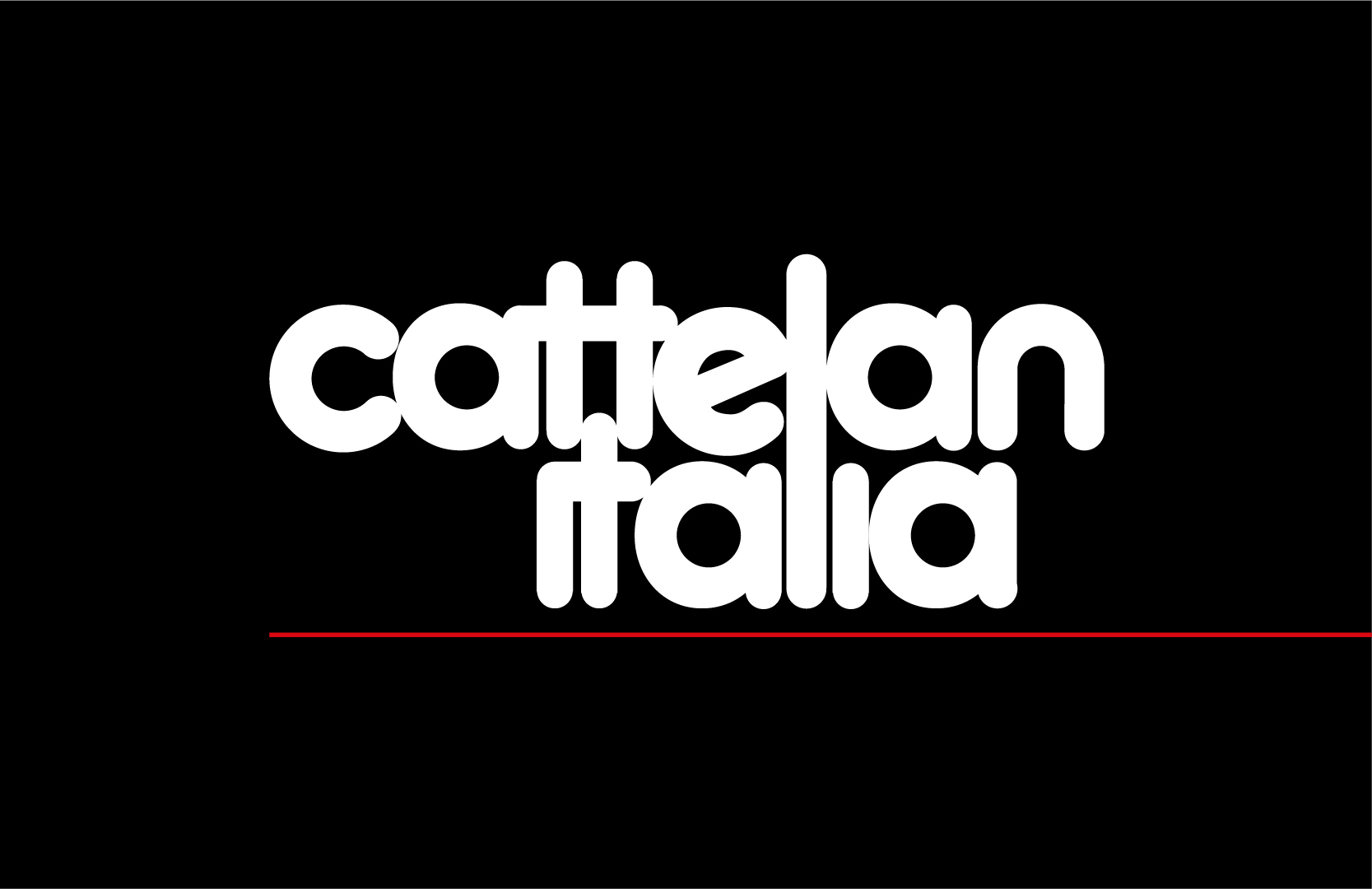These “Monolithic” Table Designs Embrace Ceramics in a New Way
The look of marble and natural stone in practical yet beautiful forms
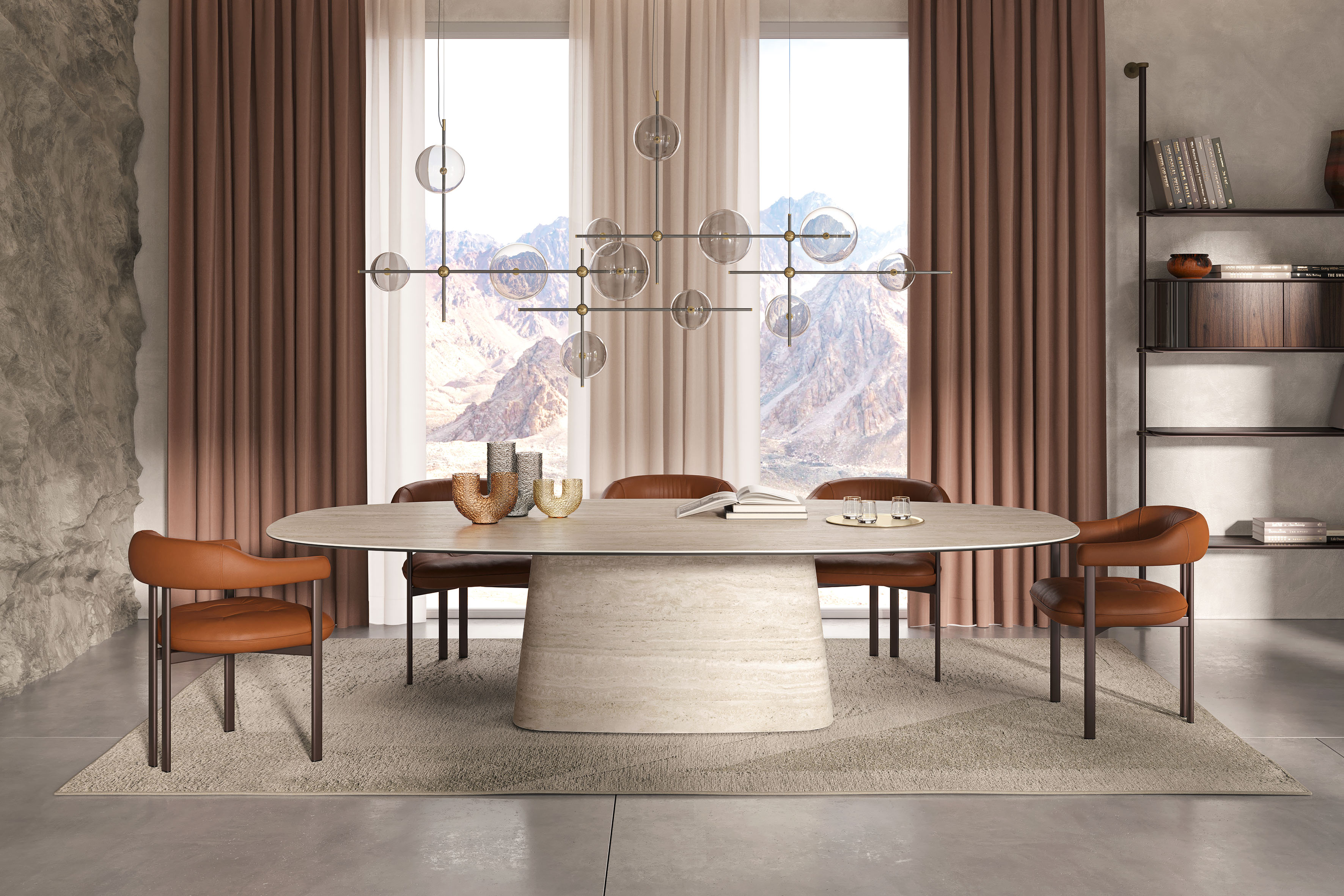
Ceramic is a material that has, until recently, had a certain aesthetic prescribed to it. Because of the flatness of the slabs, designs using ceramic have often been harsh and angular, or have required mixing materials to bring softness, but that also takes away from the sleekness of mono-materiality. Yet, for Cattelan Italia that just gave a reason to innovate.
The solution to creating ceramics with the ability to form into sinuous shapes comes from Cattelan Italia’s three-dimensional moulding techniques, meaning the brand can develop bases for its living room furniture in curves or cylinders, to match the tabletops for “monolith” designs.
Take a look below to meet some of the very best examples of how Cattelan Italia has put this idea into practice in designs for dining tables, consoles and more.
Napoleon Keramik
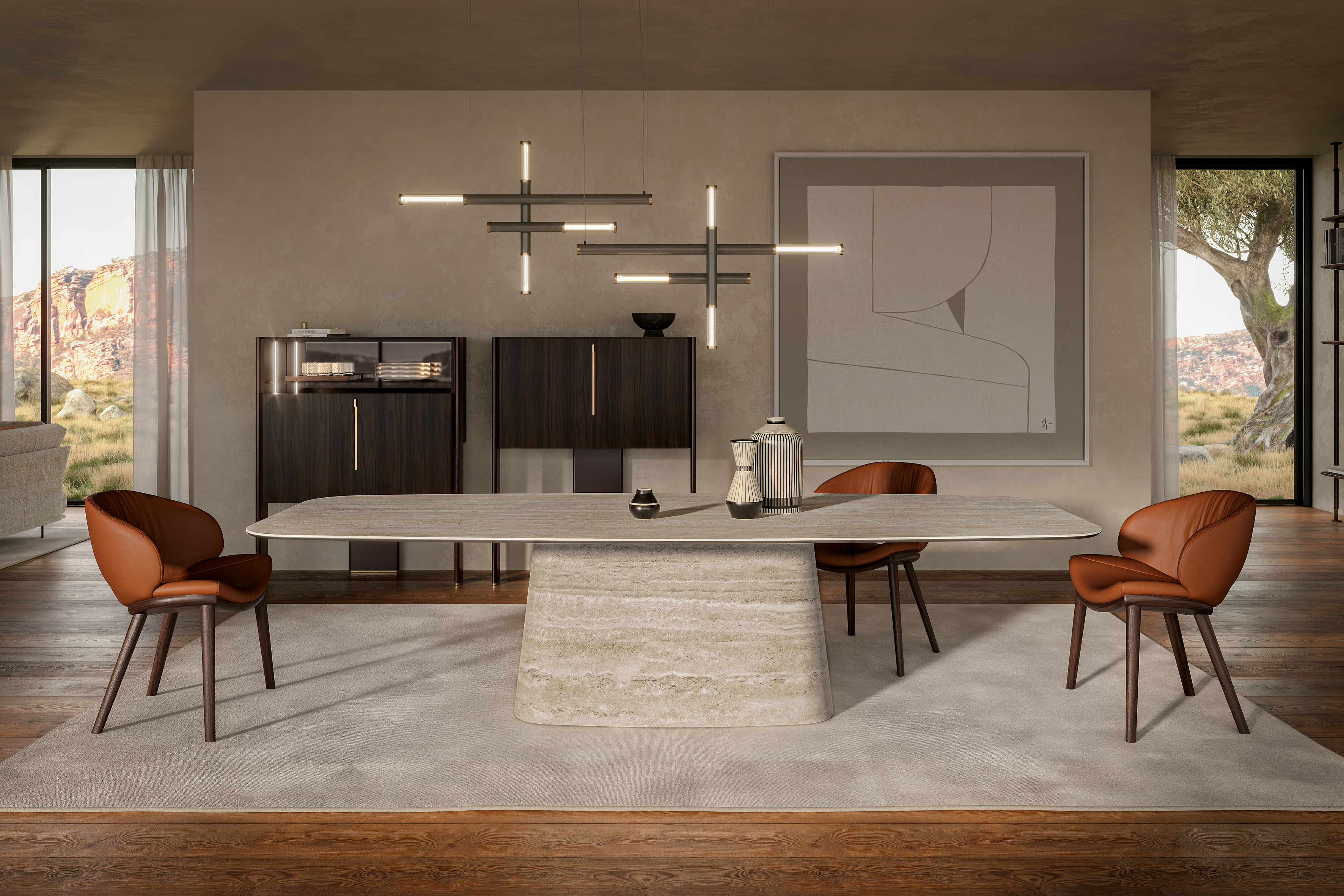
The Napoleon Keramik is perhaps the shining example of how a monolithic material can make a real statement in furniture design. It’s a contemporary dining table with a curved base and top both made from ceramic, elegantly finished with details that elevate its good looks. In its final form, it’s a table that has the feel of being carved from solid stone, while being far more practical, durable, and fine than its marble equivalent.
Rado Keramik
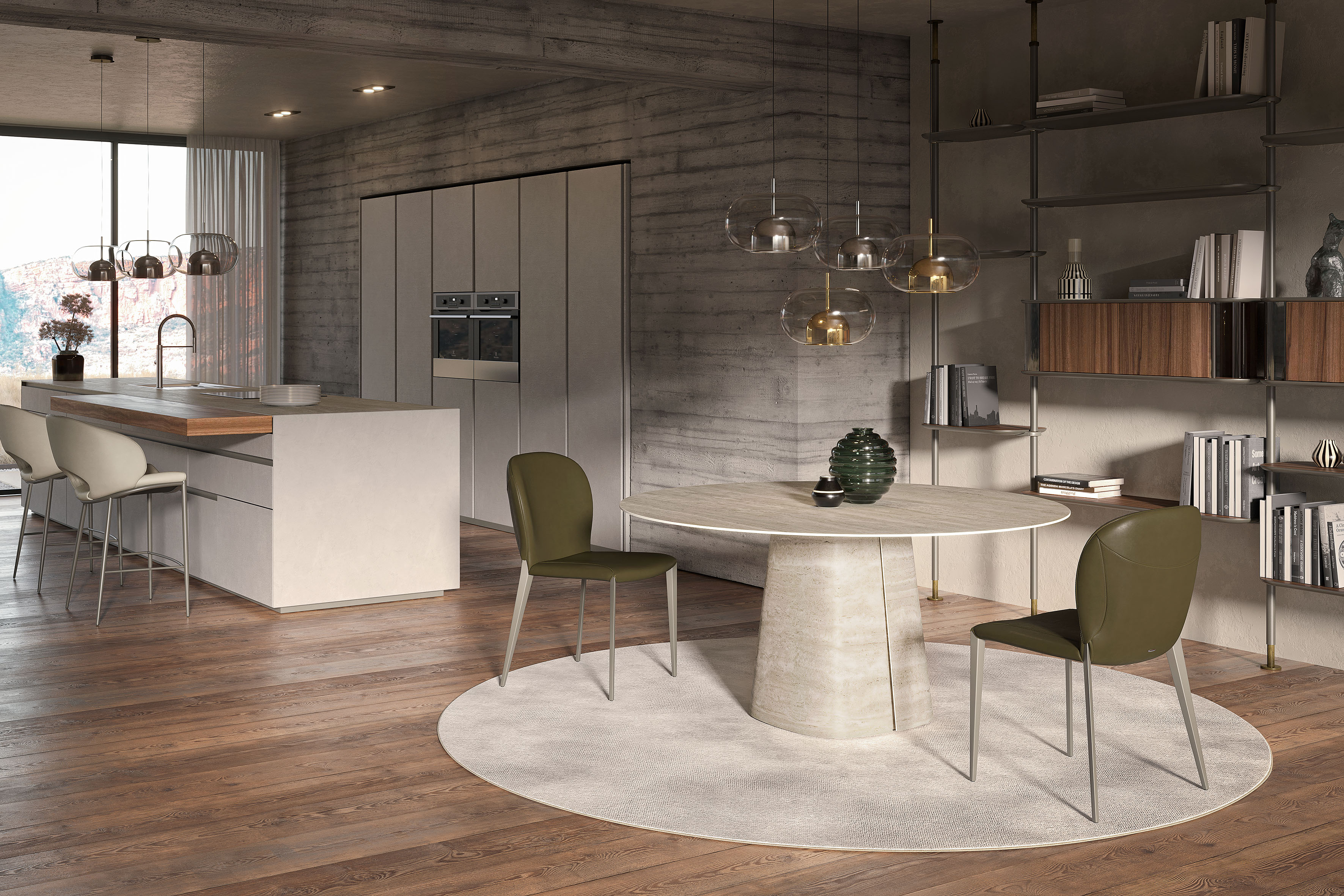
Available both in a round table and a console design, the Rado Keramik brings Cattelan Italia’s ceramic moulding process to a smaller, but equally as impressive scale.
Like the Napoleon, the Rado can be finished in dark marble-esque Matt portoro, travertine-like Colosseo or the white marble-inspired Matt invisible.
Cuba Keramik
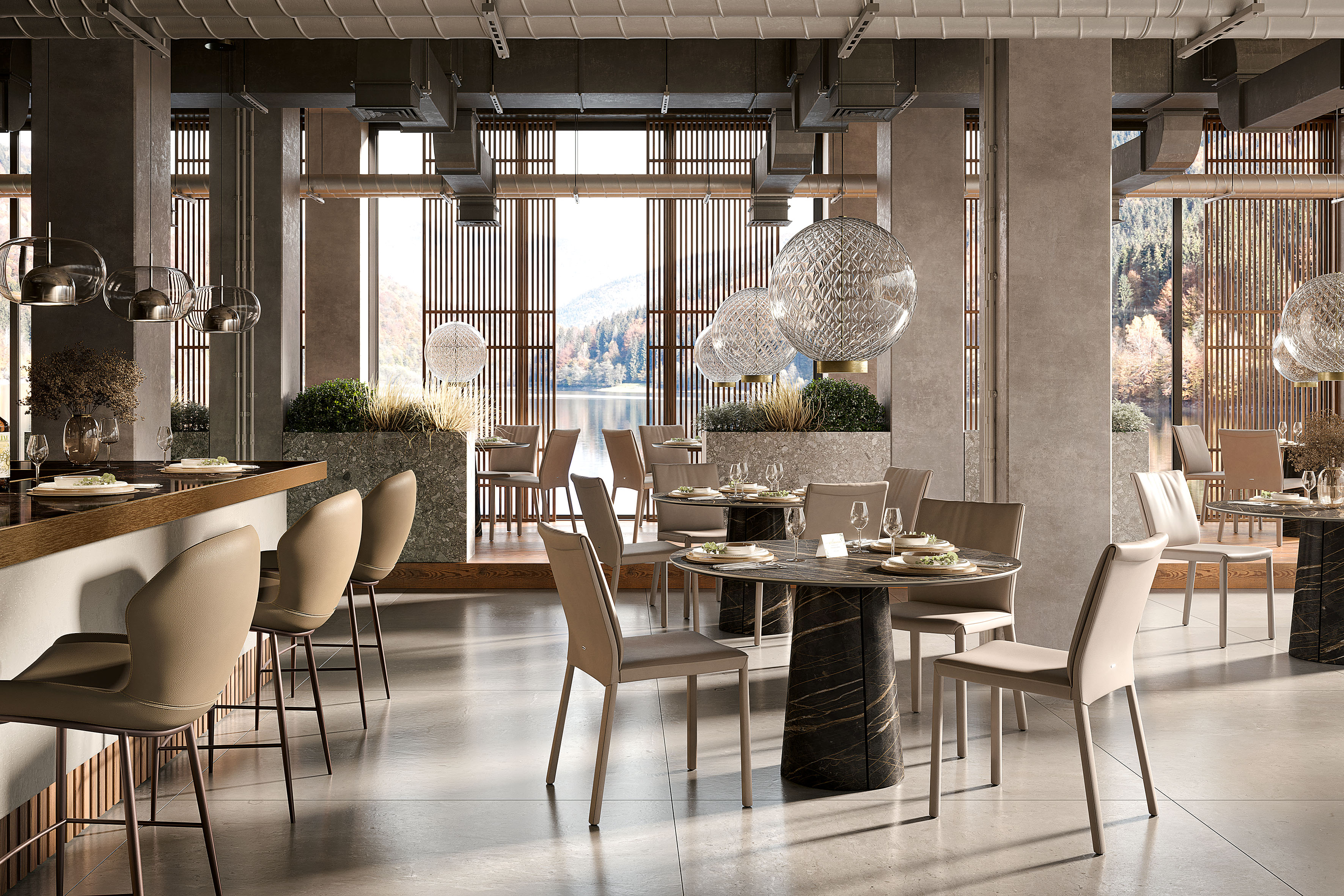
In the Cuba Keramik design, the same monolithic use of material creates the idea of a table carved from marble, while the curved panels of the base hint that there’s something more than meets the eye to this small bistro table.
These tables are perfect examples of how form and material intersect in design, and why there might just be an alternative to walking the well-trodden path of standard materials, if you know to look to a brand such as Cattelan Italia for inspiration.
The Livingetc newsletters are your inside source for what’s shaping interiors now - and what’s next. Discover trend forecasts, smart style ideas, and curated shopping inspiration that brings design to life. Subscribe today and stay ahead of the curve.
-
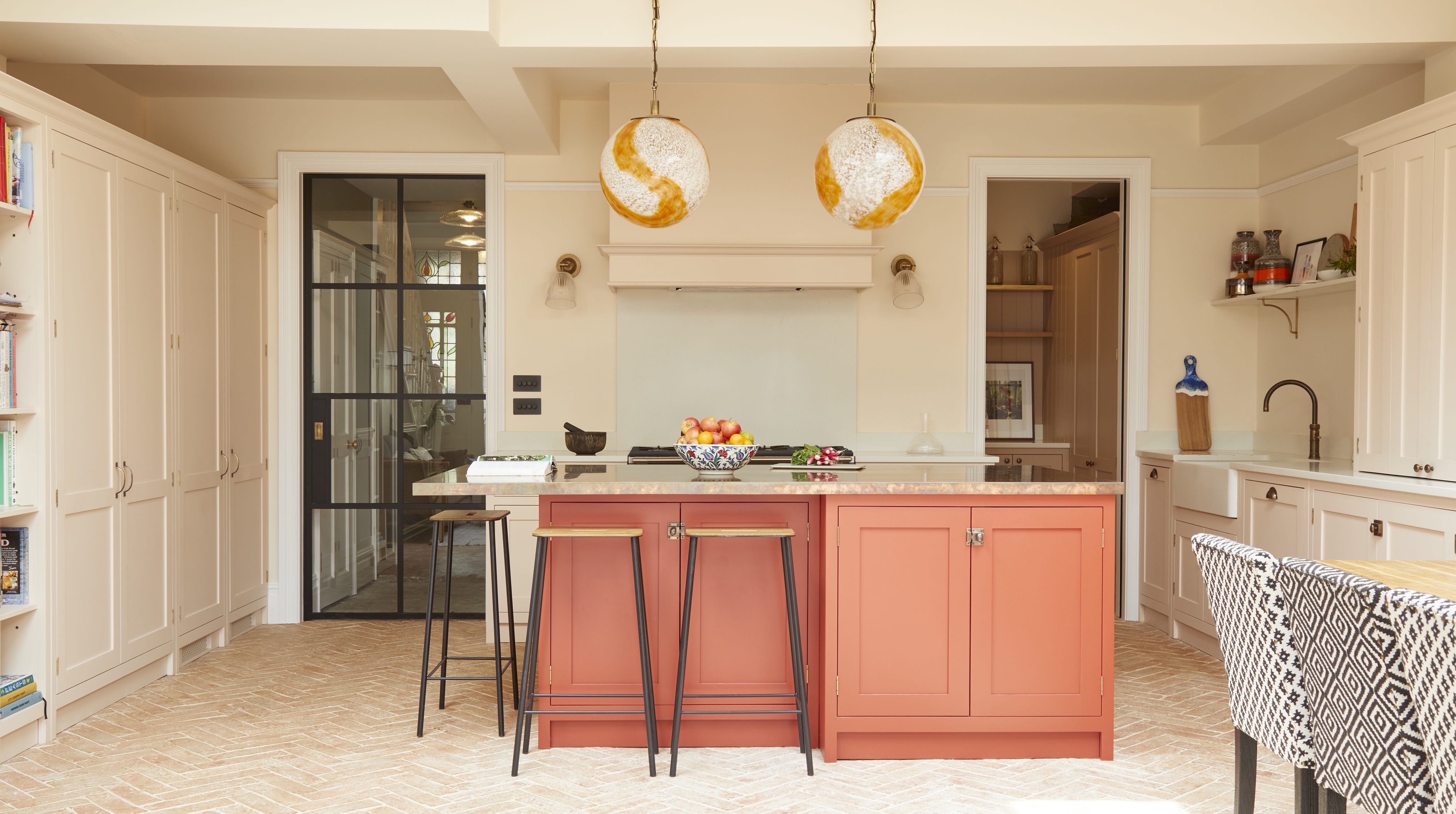 5 Things to Prioritize in Your Kitchen Renovation If You Want to Add Value to Your Home
5 Things to Prioritize in Your Kitchen Renovation If You Want to Add Value to Your HomeExperts suggest you focus on these elements for a kitchen that will seal any property deal...
-
 Rocco Ritchie’s Artist Studio Includes This Rare ‘Spaghetti’ Chair — Proving That He Doesn't Just Have His Parents' Creative Talent, but Their Eye for Iconic Design, too
Rocco Ritchie’s Artist Studio Includes This Rare ‘Spaghetti’ Chair — Proving That He Doesn't Just Have His Parents' Creative Talent, but Their Eye for Iconic Design, tooNot just another nepo baby. This iconic furniture piece is an 'underground hero'
